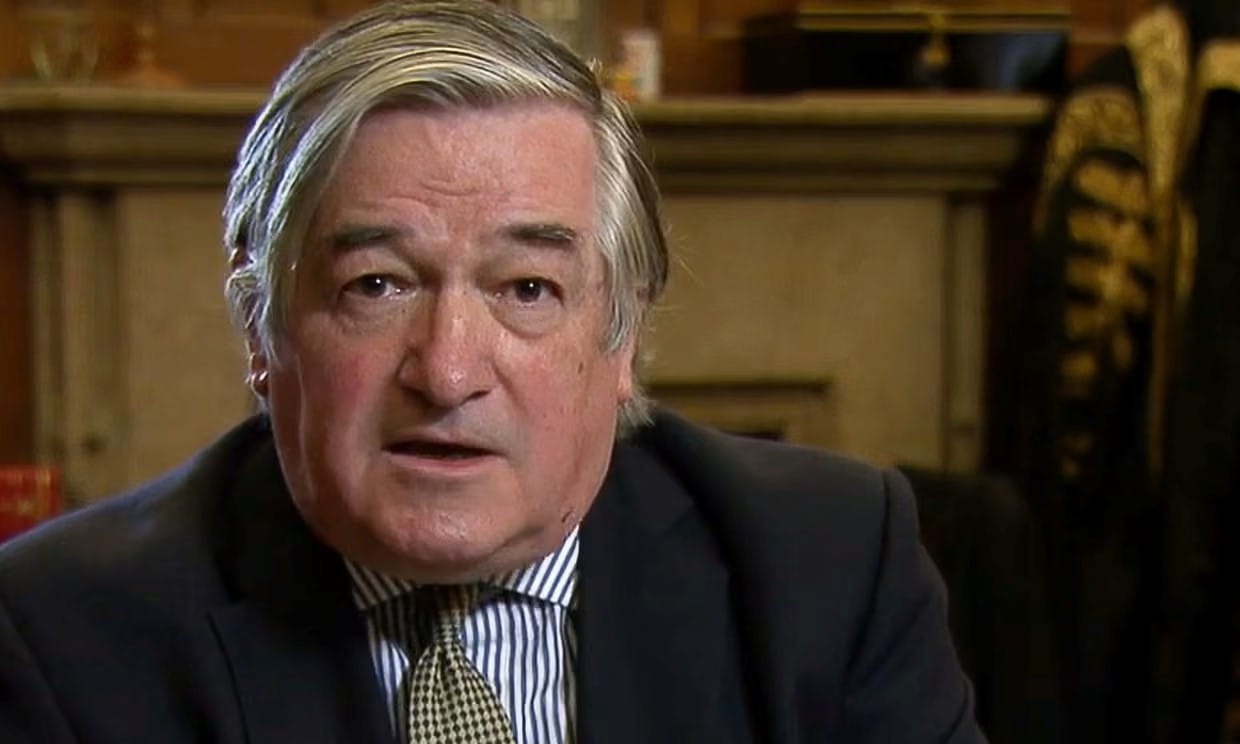Armstrong v Armstrong & Anor (Re Remedy) [2025] EWHC 2054 (Ch)
Mr Andrew Sutcliffe KC sitting as a High Court judge. Judgment considering the appropriate remedy for a claimant who had proved his proprietary estoppel claim and his alternative claim for entitlement under the Inheritance (Provision for Family and Dependants) 1975 Act.
Judgment date: 1 August 2025
https://caselaw.nationalarchives.gov.uk/ewhc/ch/2025/2054
Mr Andrew Sutcliffe KC sitting as a High Court judge. Judgment considering the appropriate remedy for a claimant who had proved his proprietary estoppel claim and his alternative claim for entitlement under the Inheritance (Provision for Family and Dependants) 1975 Act.
Factual background and first judgment
This matter relates to the agrarian Armstrong family. At the head of the family were Alan and Margaret Armstrong, who had five children together, including Richard (the claimant) and Simon (the first defendant). During Alan and Margaret’s marriage, they purchased two farms: Allerton Grange Farm and North Cowton Grange Farm.
The family enterprise was farmed by way of a partnership between Alan, Margaret, Richard and Simon (A & M Partnership & Sons). Alan and Margaret lived and worked at Allerton Grange alongside Simon, who lived nearby. Richard lived and worked at North Cowton, alongside his wife. Alan and Margaret’s eldest son and two daughters did not join the family farming business.
Over the years, Alan and Margaret made assurances that Richard would inherit North Cowton and Simon would inherit Allerton Grange. In 2017, there had been an attempted division of the family business between the two farms, however, the split was not fully implemented and the debts associated with the business remained jointly secured.
Upon the death of Margaret in 2018, Richard and Simon received her residual estate in equal shares but, following a deed of variation in 2019, Margaret's will was varied to bequest her residuary estate to Alan. At the time of signing the deed of variation, Richard was given an assurance (in the form of an encouraging nod) that he would inherit North Cowton if he signed the deed. However, in January 2020, Alan Armstrong varied his will to disinherit Richard and bequeath his entire estate to Simon and his son George. When Alan then died in October 2020, the entire family estate went to Simon and George, contrary to the promises made by Alan to Richard.
On Alan’s death, North Cowton was valued at £2.838m and Allerton Grante was valued at £2.245m; [14]. There was also land at Marton-cum-Grafton which was purchased by the business in 2011/2012 and valued at £602,000; [14]. There was an ‘all monies’ bank charge over the farms which had been assigned to the farms in different proportion but, as the 2017 splitting of the business was never formally completed, related to all assets in the business.
Following Alan’s death, Richard brought proceedings based principally on the doctrine of proprietary estoppel and, in the alternative, seeking reasonable provision from Alan’s estate pursuant to the Inheritance (Provision for Family and Dependants) Act 1975. In his judgment on 22 November 2024, Mr Sutcliffe KC determined that the claimant’s case has the necessary ingredients for a claim in proprietary estoppel:
- Promise: there were promises and assurances made to Richard throughout his life by Alan (and by Margaret, with Alan’s knowledge) that he would inherit North Cowton; [5] [6];
- Reliance: Richard relied on the promises and assurances, i.e. by not studying engineering at university and working on North Cowton for a modest income for 34 years; [7];
- Unconscionability: Alan’s new will in 2020 unconscionably repudiated on the reasonable expectation to Richard; [8];
- Countervailing benefit: there was a substantial net detriment to Richard, as he spent his entire working life at North Cowton in the expectation of inheritance and he executed a deed of variation which gave up assets to which he was entitled from Margaret’s estate; [9].
The court also determined there was a potential claim under the 1975 Act as Richard was financially dependent on Alan and Alan had failed to make reasonable financial provision for Richard; [10].
This judgment considers the appropriate remedy given the successful claims brought by Richard. Any claim under the 1975 Act as to what further reasonable financial provision is needed for Richard must be considered subsequently to the relief stemming from the proprietary estoppel claim.
Parties’ positions
Richard’s primary case was that he was entitled to half of Alan’s estate, albeit accepting that this was not consistent with the promises made to him (which focused on his inheritance of North Cowton); [32]. He submits a just outcome would be to receive North Cowton, unencumbered by any debts. He submitted that the debts against North Cowton were not meant to be in perpetuity and it would be unfair for him to receive North Cowton with the current £1.9m debts attached, whilst Simon received the unencumbered balance of the estate; [34].
Richard suggested the simplest order was to declare that the entire beneficial interest in North Cowton is held on trust for Richard and to direct the estate transfer legal title of North Cowton to Richard. The estate should procedure a release of the charge or pay Richard a lump sum to do so; [37].
Simon and George’s position was that the starting point is that Richard receives North Cowton, not half of Alan’s estate; [40]. Richard’s reasonable expectation was never to inherit North Cowton debt free; [41]. As such, the assumption should be that Richard receives North Cowton with a reasonable proportion of the debts from the two farms; [45]. It would be grossly unfair for Simon and George to receive all of the debt. They argued that had Alan conferred North Cowton to Richard burdened with a reasonable proportion of the debts, that would not have been unconscionable; [45].
Remedy on the proprietary estoppel claim
The court is tasked with preventing or undoing the unconscionable conduct giving rise to a proprietary estoppel claim (Guest v Guest [2024] AC 833). The assumption in this case was therefore that to remedy Alan’s unconscionable repudiation of his promise was to hold Alan’s estate to the promise; [29]. However, considerations of practicality, justice between the parties, and fairness to third parties may lead to a different award (Lord Briggs in Guest; [98]).
The court did not consider that the just outcome would be for Richard to receive North Cowton unencumbered; [65]. The court adopted Simon’s figures and noted that the informal split of the businesses in 2017 left North Cowton with 23% of the combined debts, but accounting for 49.92% of the value of land occupied by the two businesses. Allerton Grange was left with 77% of the debt, yet only 50.08% of the value; [15], [66]. Whilst there were no agreements about how the bank debts should be apportioned, had Alan divided the debts by reference to their values, that would not have been unconscionable. The court therefore adopted that proposal; [67].
The court ordered that the parties use their ‘best endeavours’ to secure a reallocation of the bank debts so that the debts were allocated to the two farms in proportion to their values. The court also ordered that the estate should transfer North Cowton to Richard under the adjusted debt sharing regime; [74]. A declaration was made that the land at Marton-cum-Grafton belongs to Simon and George, this was to prevent further litigation on the issue.
Remedy on the 1975 Act claim
Having found that Richard has a claim under the 1975 Act and having determined his relief from the proprietary estoppel claim, the court turned to the reasonable financial provision that Richard required; [75]. The court considered the list of factors set out in s 3 of the 1975 Act.
Richard’s claim had three elements [82]:
- He asked for relief from liabilities he may have from the two farming partnerships he was a partner of;
- Provision for housing needs since he would no longer be entitled to live in the farmhouse at North Cowton; and
- Provision for his income need.
In relation to the claimant’s first claim, the court considered that it did have the power under s 2(4) of the 1975 Act to order that Simon and George would indemnify Richard for liabilities of the farming businesses to the bank; [87]. The defendant’s primary position that relief from liability is not properly regarded as maintenance was rejected; [84].
The court also agreed with the claimant that he was entitled to purchase a house in his own name, rather than the defendant’s suggestion that he be given a life interest in a property; [90]. This was because a clean break between the parties was essential and the estate is a valuable one which justified such a generous provision; [91], [92]. The inheritance received by the claimant's wife could not be notionally put towards the claimant’s housing need as it would not be appropriate to rely on this, and the claimant’s wife would need those funds to assist her in her care needs (as someone who had Parkinson’s disease); [96]. The claimant’s needs were assessed at sum £350,000, which is a lower value than their current residence at the North Cowton farmhouse (worth c.£600,000); [97].
Finally, the court agreed with the claimant that he was entitled to provision for income need and concluded his rolled-up income needs come to a further lump sum of £300,000; [102].





